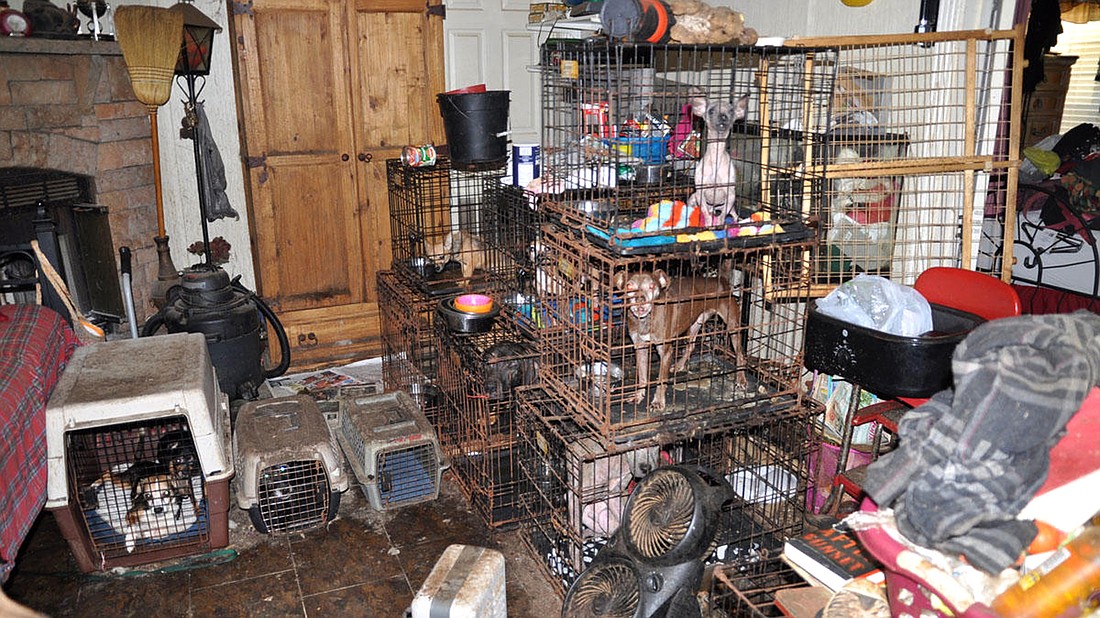- April 18, 2024
-
-
Loading

Loading

There was a time, when the kids were home, we had two dogs, two cats, and a couple of birds. When we evacuated for Hurricane Floyd it took all three of our vehicles to transport them. Today, my husband and I have one cat, two dogs and one bird, and at this time in our lives, with our schedules – that is enough.
When I first began writing a pet column in the mid 1990s it required a weekly visit to the humane society. This made my husband nervous, because we both are “animal people.” On two occassions, he returned home and said; “This (dog/cat) wasn't here when I left this morning.” This was in reaction to Luna, a golden retriever/chow mix, and Samantha our current feline in residence. I was well aware I couldn't save them all – but I would do my little part.
I confess this because I know how easy it is to fall in love during every visit. I always believed that hoarders were folks with good intentions, who became overwhelmed. Hoarders are now being recognized as individuals with mental health issues that can result in horrific consequences for the animals they are “helping,” and their own families.
According to the Humane Society of the United States, there are a quarter of a million animals who become victims to hoarders every year. Statistics show that hoarders are generally female, over 60 and live alone. They have an unusual number of “pets” without the financial means to house or care for them, and they deny this inability.
The process is a gradual one, starting with a pet or two, but then the numbers increase. Sometimes people bring animals to them, or they start picking up strays – to protect them – and soon there are too many to manage. The person will go without necessities for herself, and may even become reclusive, to try and provide for the animals. But animals are expensive to properly care for.
There is help for people who suffer from pet hoarding, but the first step is intervention. Pet hoarders will deny they have a problem. Many friends and family members worry about getting their friends and loved ones into legal trouble, but it is important to remember that the situation is inhumane for all involved and must be resolved. Animal hoarding cases do not have to end with criminal prosecution of the hoarder.
It is important is to get the animals out, to eliminate the possibility of the hoarder obtaining new animals, and to get long term help for the person suffering with the mental illness.
Tonya Ladwig confesses to be a “lazy fisherwoman." She and her husband Thom's dog, Neela, does the fishing for the couple. Tonya baits the hook and places the pole in the rod holder on the couple's dock, and Neela takes over. She watches the line and as soon as it gets a hit, her tail begins to wag, followed by barking, to alert the couple they have a catch. If her barks are ignored, she leaves her pole long enough to go to the screen door to retrieve Tonya.
Once the fish is off the hook, Neela sniffs, gives it a quick kiss, and then the fish is released back into the canal. When fish are kept, Neela stands guard over the bucket. Walks to parks with docks include checking out those fishing, and anyone with a fishing pole is a new best friend.
“I am sure there are other fishing dogs out there, but this one has stolen our hearts forever,” Tonya said.
Adoptable pets